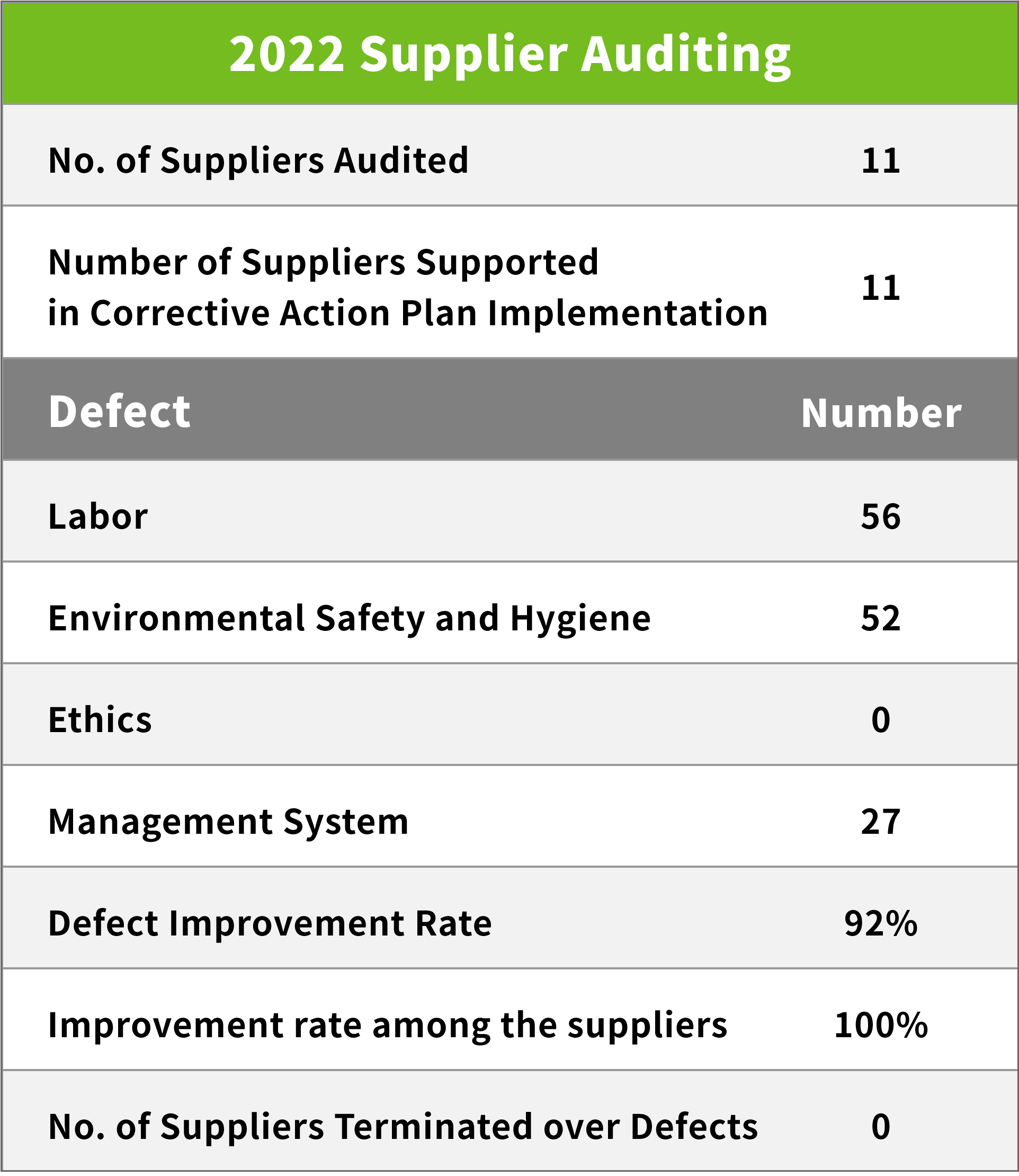Supplier Assessment and Audit
When a new supplier wishes to do business with Compal, it will be asked to complete and submit forms including “Supplier Basic Information Form,”,“Supplier Management Function Questionnaire,” “Supplier Environment Management Checklist,” “RBA Supplier Management Self-Assessment Questionnaire” (SAQ) along with other ISO certification documentations in accordance with the “ISO 902006 Procurement Management Regulations” and “ISO 902007 Qualified supplier Assessment Regulations.”The assessment will cover different aspects of environment, safety, product liabilities, human rights and society. Suppliers are categorized as Type A or B depending on their attributes:

| Category | |
| A |
1.Leading Vendor |
| 2.IC Design Company | |
| 3.Customer | |
| 4.Customer-designated supplier. If ODM models will be used then they must be changed to Type B and the relevant contracts signed in advance. | |
| B | 1.Manufacturers awaiting review |
Compal conducts random on-site factory audits of existing qualified suppliers every year based on transaction amount and risk. Compal plans to strengthen sustainable supply chain management and in 2022, Compal introduced the concept of ESG (Environmental, Social, and Governance) into its audit processby by expanding the 2023 supplier audit to take (1) SAQ score (2) Legacy sustainability risk into account. Those with low SAQ scores or high legacy sustainability risks will be audited for enhanced supervision and tracing.
Compal will require suppliers to devise and execute improvement plans for all levels of defects. Priority defects will be monitored and the supplier actively required to make improvements. In 2022, Compal’s Kunshan plant and Chongqing plants completed on-site audits of 11 suppliers. The audits found that supplier defects were mainly concentrated in “Labor.” There were for example 56 cases of excessive work hours and rest days not being enforced; there were 52 secondary defects including inadequate environmental monitoring and environmental hygiene, and failure to keep proper records.
For such oversights, in addition to asking the suppliers to improve before a specific deadline and submit an improvement report, the Company will also conduct random audits for high-risk suppliers in order to address issues and oversights pertaining to labor. Compal completed the follow-up and reviews on the outcome of supplier audit within the same year. All 11 suppliers have undergone improvements for their deficiencies, resulting in a 100% improvement rate among the suppliers. The improvement rate for the identified deficiencies stands at 92%. The Company continues to monitor suppliers for excessive working hours. In the case of high-risk suppliers who fail to respond to improvement notifications for three consecutive times, discussions will be held regarding reducing the number of new projects awarded to them or decreasing the existing procurement volume. In severe cases, the supplier will be removed from the list of compliant suppliers.

Updated on July 18, 2023
